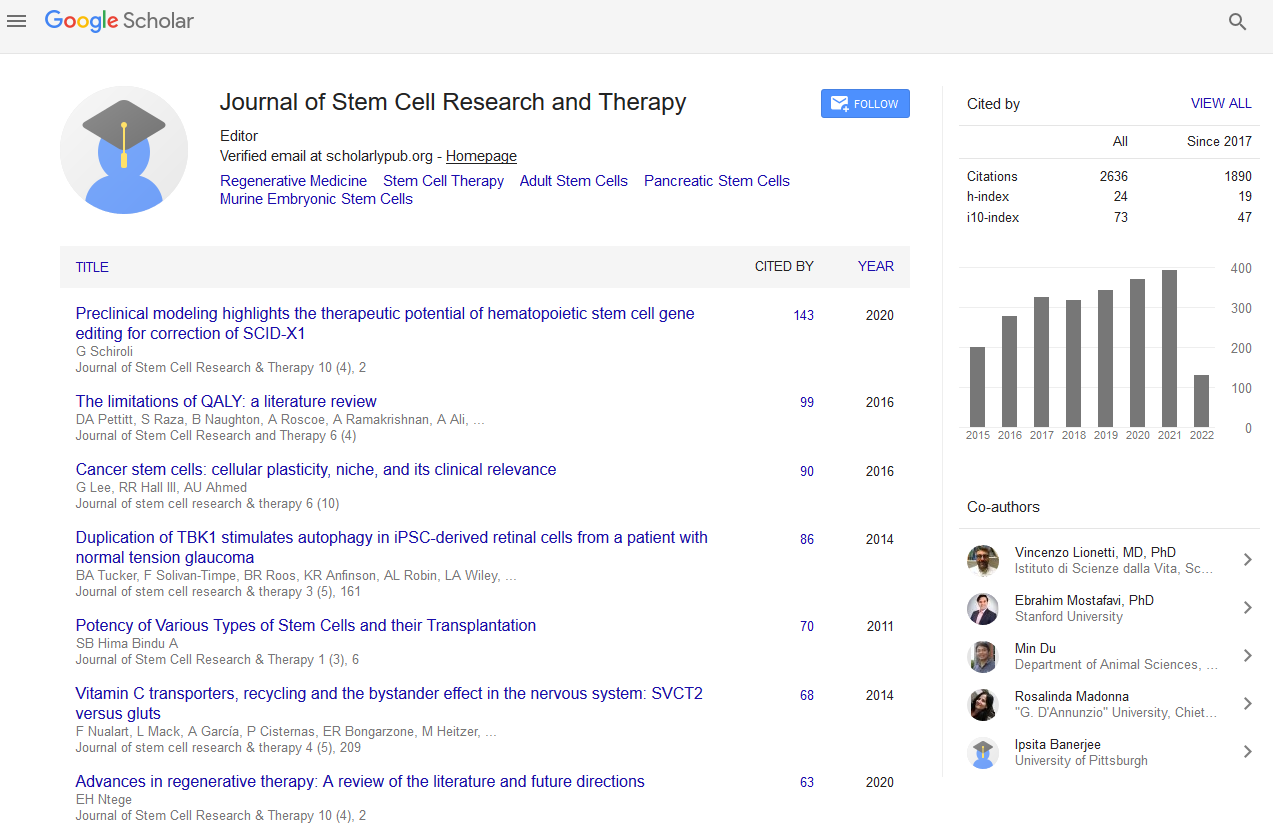Indexed In
- Open J Gate
- Genamics JournalSeek
- Academic Keys
- JournalTOCs
- China National Knowledge Infrastructure (CNKI)
- Ulrich's Periodicals Directory
- RefSeek
- Hamdard University
- EBSCO A-Z
- Directory of Abstract Indexing for Journals
- OCLC- WorldCat
- Publons
- Geneva Foundation for Medical Education and Research
- Euro Pub
- Google Scholar
Useful Links
Share This Page
Journal Flyer

Open Access Journals
- Agri and Aquaculture
- Biochemistry
- Bioinformatics & Systems Biology
- Business & Management
- Chemistry
- Clinical Sciences
- Engineering
- Food & Nutrition
- General Science
- Genetics & Molecular Biology
- Immunology & Microbiology
- Medical Sciences
- Neuroscience & Psychology
- Nursing & Health Care
- Pharmaceutical Sciences
Abstract
Topical Application of Adipose Tissue-Derived Mesenchymal Stem Cells Ameliorates Renal Ischemia-Reperfusion Injury in Rats
Ping-kuen Lam, Chi-fai NG, Wai-lun Tang, Anthony WI Lo, Cindy SW Tong, Don WC Chin, Kenneth HK Wong, Kin KY Lo, Richard KW Choy, Eddie SY Chan and Paul BS Lai
Ischemia-Reperfusion Injury (IRI) was induced by clamping bilateral renal pedicles simultaneously for 60-min using bulldog clamps in Sprague-Dawley rats. They were then randomized into five groups: Group-I-3 × 106 MSCs were topically applied to the surface of each kidney with a layer of fibrin sealant, Group-II-only fibrin sealant was added, Group-III-only 3 × 106 MSCs were added, Group-IV-1 × 106 MSCs were injected directly into tail-vein and Group-V received no additional treatment (control). Serum creatinine in Group-I at Day-3 was significantly lower than the other groups. By Day-7, survival rates of animals with renal IRI were 81.3% in Group-I, 31.3% in Group-II, 37.6% in Group-III, 30.8% in Group-IV, and 25% in Group-V. At Day-3, histology of kidneys from Group-I showed less tubular necrosis and interstitial inflammation, when compared to Group-V. Reverse transcription polymerase chain reaction showed down-regulation of caspase-3 (indicator of apoptosis) and endothelin-1 (indicator of endothelial damage) and up-regulation of NQO-1 (antioxidative molecule) (p<0.05). A total of 4168 unique genes of the topical MSCs growing on the surface of ischemic kidneys were differentially regulated with reference to the MSC pellet (greater than twofold change; p<0.05). In conclusion, application of topical MSCs with fibrin sealant could improve outcomes of renal IRI ischemia in rats.


